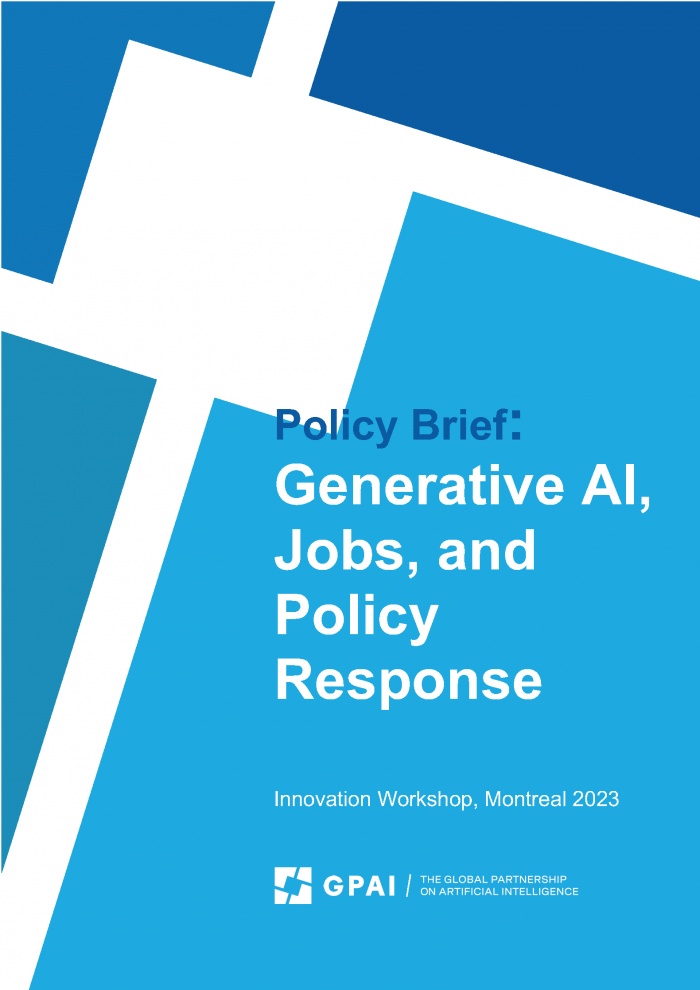This website uses cookies so that we can provide you with the best user experience possible. Cookie information is stored in your browser and performs functions such as recognising you when you return to our website and helping our team to understand which sections of the website you find most interesting and useful.
Policy Brief: Generative AI, Jobs, and Policy Response


Generative AI and the Future of Work remain notably absent from the global AI governance dialogue. Given the transformative potential of this technology in the workplace, this oversight suggests a significant gap, especially considering the substantial implications this technology has for workers, economies and society at large.
As interest grows in the effects of Generative AI on occupations, debates centre around roles being replaced or enhanced by technology. Yet there is an incognita, the “Big Unknown”, an important number of workers whose future depends on decisions yet to be made.
Governments, companies, and social partners should aim to minimize any potential negative effects from Generative AI technology in the world of work, as well as harness potential opportunities to support productivity growth and decent work. This brief presents concrete policy recommendations at the global and local levels. These insights are aimed at guiding the discourse towards a balanced and fair integration of Generative AI in our professional landscape.
This report was developed by Experts of the Global Partnership on Artificial Intelligence’s Working Group on the Future of Work. The report reflects the personal opinions of GPAI Experts and does not necessarily reflect the views of the Experts’ organizations, GPAI, the OECD or their respective members
